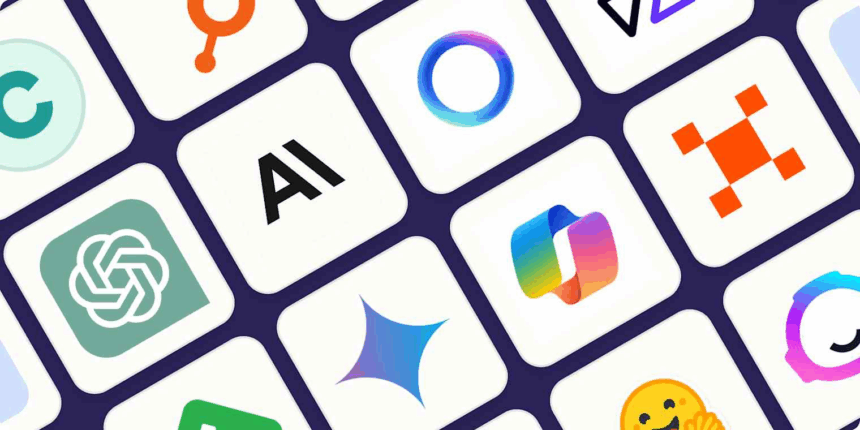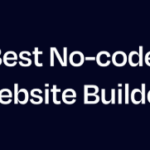I will explore some of the Best Multi-Channel AI Chatbot Platforms for Websites and the solutions these technologies offer to businesses in providing effortless customer service, enhancing satisfaction, and integrating business communications across different contact points in the digital ecosystem.
These technologies bring tremendous value to businesses in digital transformation, providing the ability to set up automated response mechanisms, gain automated feedback, and maintain standardized service deliveries across numerous touch points.
What is Multi-Channel AI Chatbot Platforms?
Multi-Channel AI Chatbot Platforms help businesses implement AI chatbots that can function across different sectors including websites, mobile applications, social media, messaging apps, and email.
These services personalize and automate responses across all platforms, offering users personalized accounters of their queries while channel streamlining conversation management and analytics.
AI technology enables users to understand and respond to queries automatically in real time, and manage requests that require higher levels of input to human reps. This services boosts customer engagement, efficiently support services, and improves user service experience through automation.
Why Use Multi-Channel AI Chatbot Platforms for Websites
Wider Customer Reach: Interact with customers from a single platform through web chatting, social networking, and messaging applications.
Always Available: Providing customers with instant responses and support anytime will result in greater customer satisfaction.
Consistent Customer Service: Every customer will receive the same messaging and brand voice no matter the channel.
More Efficiency: Human agents will have more time for complex tasks because routine tasks, FAQs, and lead qualification will be automated.
Centralized Analytics: Make better decisions with centralized analytics that tracks user behavior, preferences, and performance metrics.
Effortless Integration: Improve workflow with automated business tasks and connect it to CRM, e-commerce, and other business tools.
Reduced Support Staff: Handle increased volume of customer inquiries with less support staff which saves on operational costs.
Key Point & Best Multi-Channel AI Chatbot Platforms for Websites
| Platform | Key Points / Features |
|---|---|
| Intercom | Multi-channel support, automation, personalized messaging, CRM integration |
| Drift | Conversational marketing, lead qualification, real-time chat, AI-powered responses |
| HubSpot Chatbot | CRM integration, workflow automation, lead capture, conversational AI |
| Tidio | Live chat + AI chatbot, email integration, multi-language support, customizable bots |
| Zendesk Answer Bot | AI-powered ticket resolution, knowledge base integration, automated replies, analytics |
| Zoho SalesIQ | Visitor tracking, AI chat, lead scoring, integration with Zoho suite |
| LivePerson | AI messaging, NLP-based conversations, multi-channel support, analytics |
| ManyChat | Messenger automation, marketing campaigns, AI chat, e-commerce integration |
| MobileMonkey | Omni-channel chatbot, lead generation, automation, Messenger & SMS support |
| Landbot | No-code chatbot builder, conversational flows, multi-channel deployment, integrations |
1. Intercom
Intercom is one of the best multi-channel AI Chatbots for websites. Intercom is able to integrate for live chat, automated messaging, and personalization through the web, mobile, and social channels.
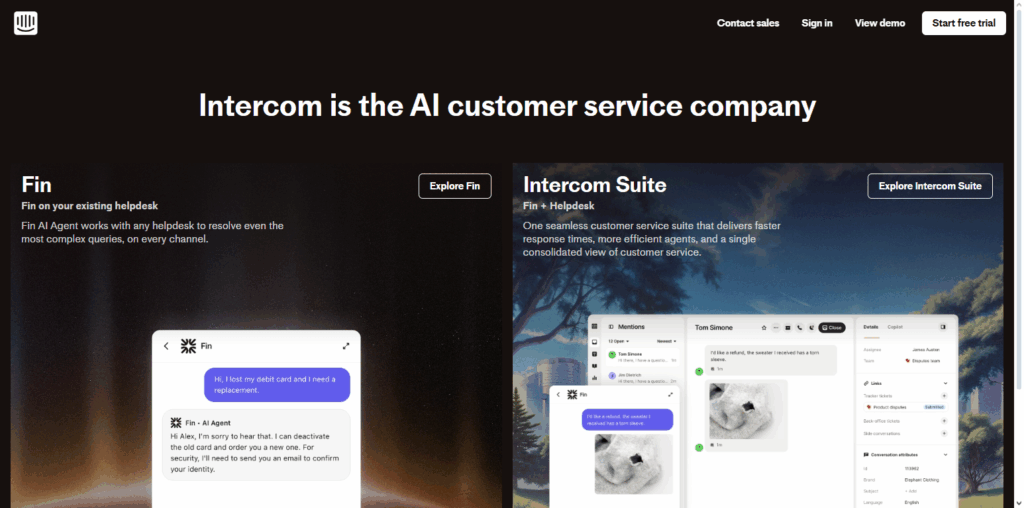
Intercom leverages AI for intelligent lead qualification, automated answering of simple questions, and knows when to pass the conversation to a human for more complicated questions.
Intercom integrates with most major CRMs enabling businesses to document conversations and analyze customer behavioral data. These features outweigh competitors and make Intercom one of the best multi-channel AI Chatbots for websites when trying to optimize customer support and marketing workflows.
Intercom – Key Features
- Automating customer support and lead qualifications using AI
- Multi-channel messaging within web and mobile and email
- Unified customer record using deep CRM and helpdesk integrations
2. Drift
Drift focuses on conversational marketing and sales acceleration. DriftAI engages website visitors and qualifies leads. Drift replies to customers within seconds and answers questions instantly. Drift is also able to schedule meetings.
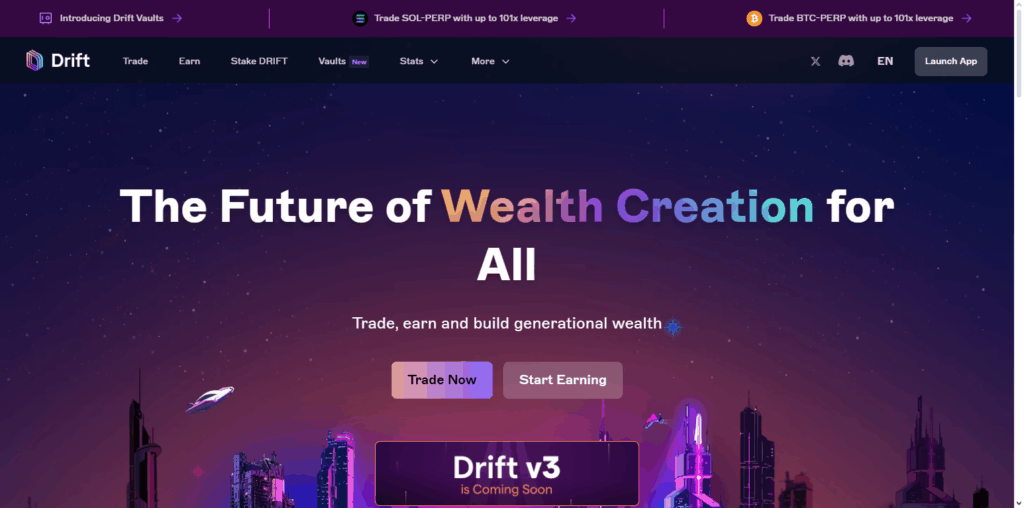
Drift is the best example for conversion, user experience consistency, instant support, and website + multi-channel AI Communication. Drift is one of the best multi-channel AI chatbot platforms for websites.
Drift – Key Features
- Tools for conversational marketing that allow for audience capture and conversion
- provides real-time AI conversation for lead qualification and meeting scheduling.
- multi-channel support with optimized analytics and personalization.
3. HubSpot Chatbot
HubSpot Chatbot is one of the best multi-channel AI Chatbot Platforms. The HubSpot Chatbot Automates the creation of support tickets and the automation of lead capture. HubSpot tracks the customer through their marketing automation software.
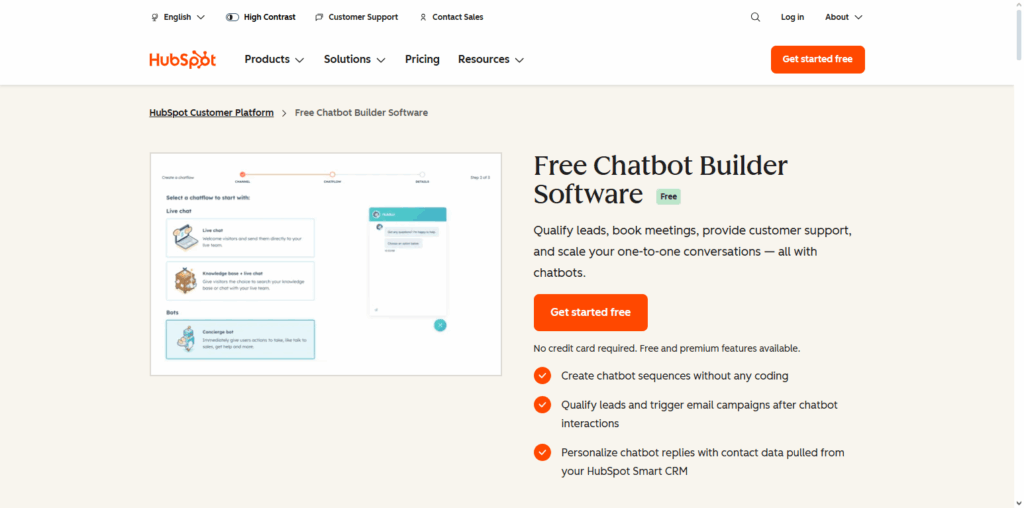
The Chatbot engages with users in live chat, email, and through social media platforms. The HubSpot Chatbot customizes replies through workflows and AI to route advanced questions to users that to human support. HubSpot Chatbot is one of the best multi-channel AI Chatbot Platforms.
HubSpot Chatbot – Key Features
- Direct connection with HubSpot CRM for easier integrations
- Automated workflows lead capture, support, and ticket creation
- Multi-channel messaging via live chat, email, and social.
4. Tidio
Tidio is simple to use. Unlike others, Tidio is a Multi-Channel platform, allowing interaction through chat, social media, and emails. Tidio’s AI provides answers for FAQs, responds to leads, and tailors answers based on interaction.
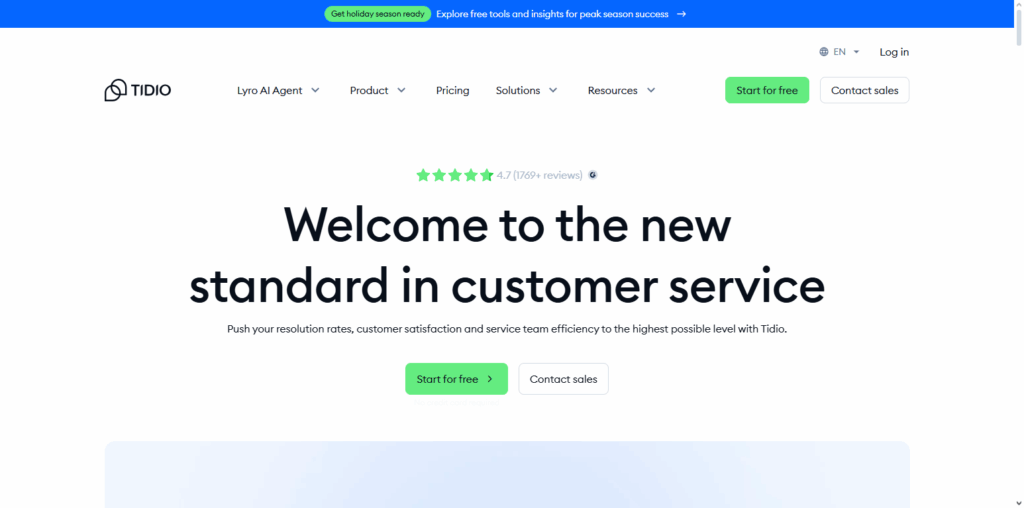
You can optimize answers from knowledge bases. Their analytics look at what users on the site do, what the users do, and how long the pay attention to the site before leaving. The AI can handle other languages. For those looking for the best and most simple, Tidio is definitely one of the best AI chatbots.
Tidio – Key Features
- AI chatbot and real-time engagement live chat system
- multi-channel support via website, email, and social
- user-friendly with many customizable chatbot templates
5. Zendesk Answer Bot
Zendesk Answer Bot is one of the best AI chatbots for websites, as it focuses on customer support. It is part of the larger Zendesk software suite. It provides instant answers to user questions by using AI and machine learning to create suggestions based on the knowledge and answer database it pulls from.
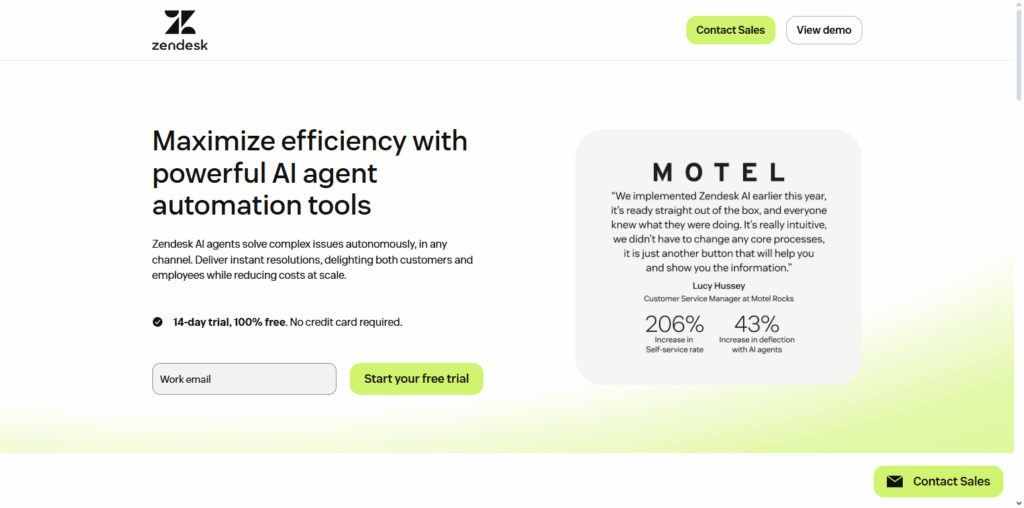
Answer Bot works for web chat, and email and mobile messaging. It can reduce response times and how many support tickets are sitting unanswered. It can seamlessly transition a customer to a live support agent to answer a more complicated inquiry. Zendesk tool can be very helpful to a company that needs support automation. Zendesk answer bot is one of the best all in one AI chat bot platforms for websites.
Zendesk Answer Bot – Key Features
- Automated AI generated responses using your knowledge base.
- Multi-channel support via web, email, messaging apps
- Automated ticket deflection
6. Zoho SalesIQ
Zoho SalesIQ has integrated AI for boosting customer interactions through websites. Zoho SalesIQ tries to track customer online behavior and aims to increase customer conversion though customer engagement.
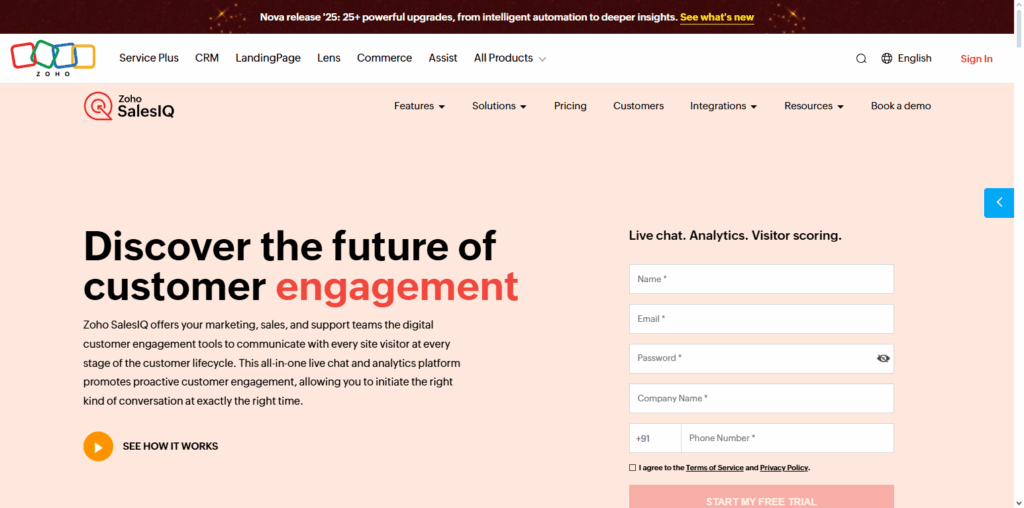
The platform also collaborates with other Zoho services for better integration and communication.
The chat bots also have a flow for conversion rate improvement by directing FAQs and guides for customer assistance and start a workflow automatically. Those looking to pair services and support in one platform, Zoho SalesIQ is one of the best multi-channel AI chatbot platforms for websites.
Zoho SalesIQ – Key Features
- Chatbots and live chats powered by AI for visitor involvement.
- Tools for visitor website tracking and lead scoring.
- Compatibility with Zoho CRM and other business programs.
7. LivePerson
Based on multiple website reviews for AI customer service chatbots, LivePerson is listed among the top AI customer service chatbot websites (LivePerson, 2024). Also, LivePerson, Inc. provides websites with multiple communication channels (LivePerson, 2024) .
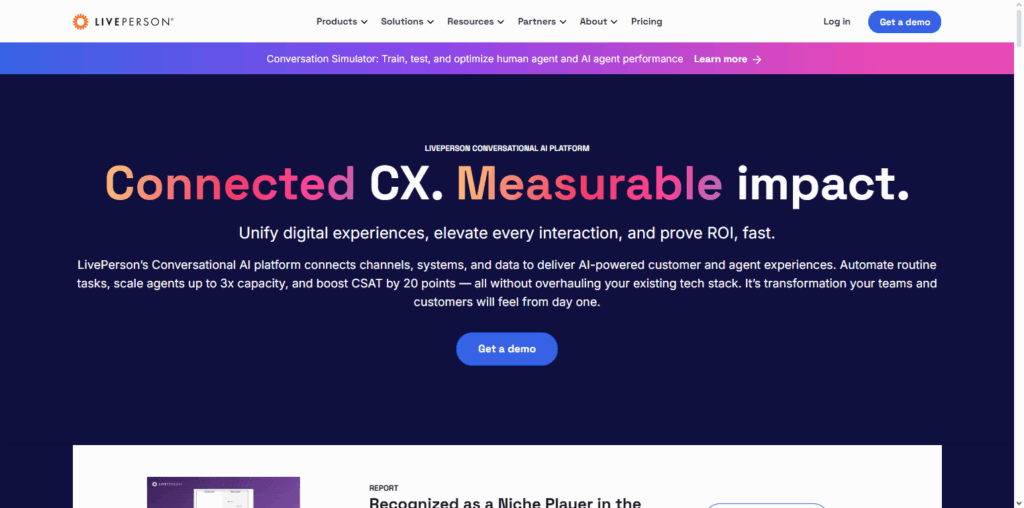
for AI chatbots, the multiple channels are integrated so the AI can use the chatbots to complete knowledge tasks in one area and, if needed, switch to other communication channels (LivePerson, 2024). also, they can increase the website’s sales with their customer engagement strategies (LivePerson, 2024). thus, if one is looking for customer engagement strategies and websites with AI chatbots, LivePerson is one of the best platforms.
LivPerson Key Features:
- AI based natural language processing (NLP ) for real human conversation.
- Multipurpose channel messaging and communication across web and social.
- Tools for proactive engagement and analytics.
8. ManyChat
ManyChat is a multi-channel AI chatbot offering for websites with a focus on marketing automation and social media messaging. ManyChat integrates with Facebook Messenger, Instagram, SMS messaging, and web chat to provide automated and seamless communication. With conversational AI, marketing services to run promotional campaigns and capture user leads through a sales funnel are accessible.
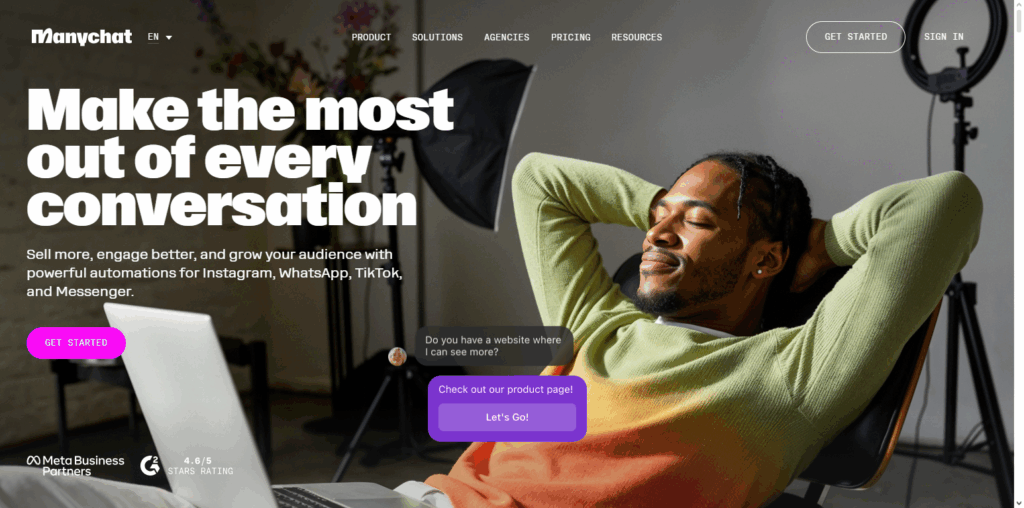
ManyChat is one of the best multi-channel AI chatbot platforms for websites where social engagement and lead generation are also a focus, due to the user-friendly and variable marketing tools that easily allow for the design of chatbot flows with no coding required.
ManyChat – Key Features
- Multi Channels Chatbot for Facebook Messenger & Instagram & SMS & Web
- Pre-built Automation Flow and Drag-and-Drop Flow Builder
- E-commerce and CRM integrations for lead capturing
9. MobileMonkey
MobileMonkey provides a multi-channel AI chatbot platform for websites that streamlines web chat, Messenger, SMS and other messaging apps into one platform. With MobileMonkey, lead generation, customer support and marketing campaigns are automated for seamless and integrated communication through any platform.
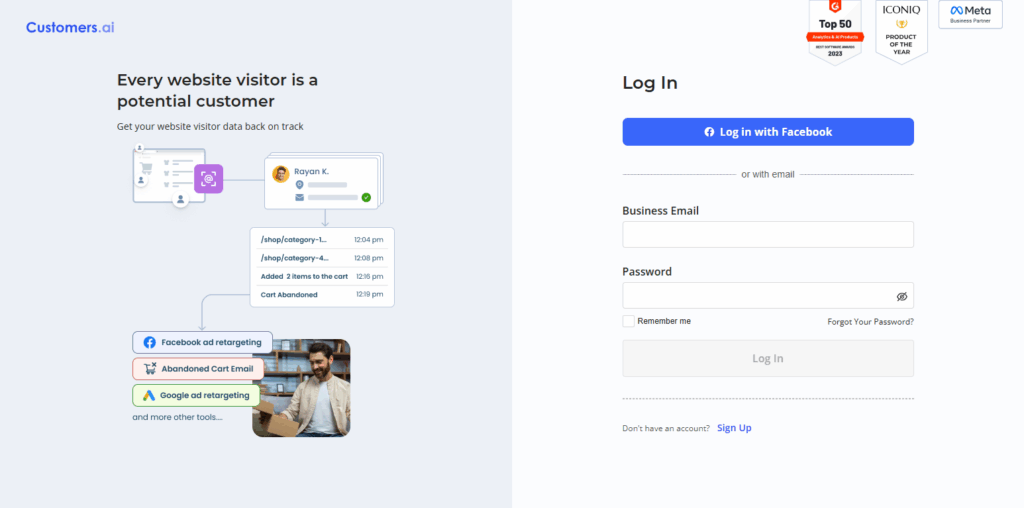
In terms of AI, MobileMonkey provides chat-based campaigns, personalized messaging, and automatedflows, as well as tracking to assess engagement and sales data. MobileMonkey is one of the best multi-channel AI chatbot platforms for websites for customer support and marketing as powerful services come packaged in one offering.
MobileMonkey – Key Features
- Omni-channel Messaging for Web Chat and SMS and Social
- Automation for lead qualification and customer service
- Marketing features including Drip Campaigns and Chat Funnels
10. Landbot
Landbot is a no-code multi-channel artificial intelligence chatbot system that works with web pages and is terrific for creating interactive conversation experiences. It helps organizations design chat flows for web and mobile on messaging applications without any technical know-how. Landbot’s A.I. respond to FAQs, qualify leads, and start automated processes.
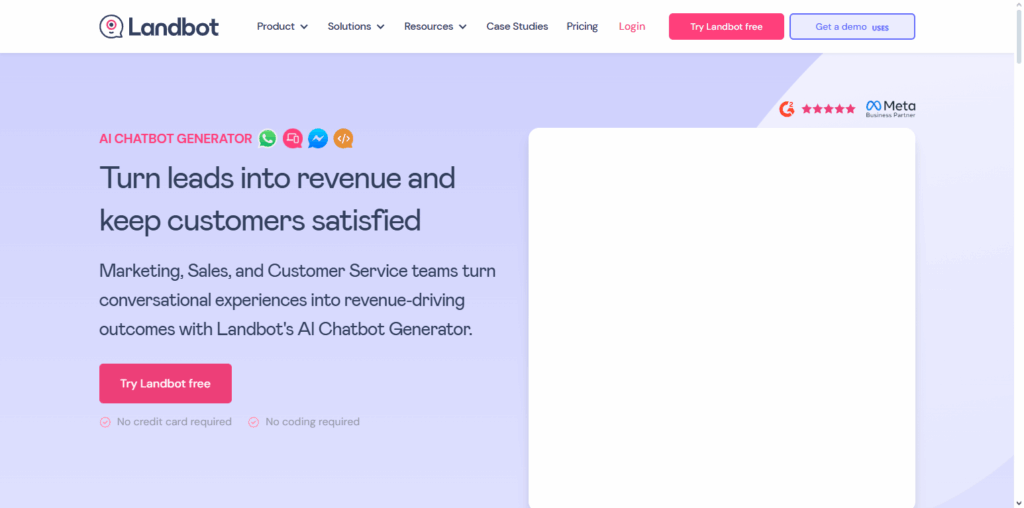
Syncing with a company’s CRM, email, and business applications helps speed up processes. The visual builder makes chatbots easy to create. Out of many platforms, the intuitive, and customizable Landbot continues to be a favorite. Landbot is one of the best multi-channel A.I. chatbots for websites.
Landbot – Key Features
- No-code Chatbot Builder and Conversational Design
- Websites and WhatsApp and other Messaging Apps
- Automation tools integrations and CRM and Email Marketing
Risk & Consider
Data Privacy & Security: With greater customer surveillance comes greater risk of customer data breaches and the need for GDPR/ CCPA compliance.
Integration Complexity: The technical difficulties from integrating the chatbot with CRMs, e-commerce, and other systems.
AI Misunderstanding Queries: Fallback procedures are crucial, as AI systems erroneously understand queries, resulting in disatisfaction.
Over-Automation: Frustration from users who prefer interacting with a human as system over-automation is a commonplace user issue.
Maintenance & Updates: The system requires regular updates and AI model tweaks to the sufficiently facilitate self flows.
Cost Implications: These platforms pack a premium and are out of the reach of small businesses.
Dependence on Internet & Platform Stability: If any of the integrated systems or messaging modules are offline, the chatbot will be inoperative.
Conclusion
Any business looking to improve customer interaction, optimize service, and increase customer purchases will find multi-channel AI chatbot platforms like Intercom, Drift, HubSpot Chatbot, Tidio, Zendesk Answer Bot, Zoho SalesIQ, LivePerson, ManyChat, MobileMonkey, and Landbot extremely useful The integration of sophisticated AI, seamless support in several channels, and business tools automation help save time and enhance customer satisfaction by reducing turnaround time for repetitive requests.
Customer service costs go down along with customer service burnout in support roles. The integration of these platforms is crucial for any current website strategy, keeping in mind the needs for features determined by the audience and business goals.
FAQ
Why should I use a multi-channel chatbot for my website?
Using a multi-channel chatbot improves customer support, increases lead generation, automates repetitive tasks, and delivers instant responses. It also provides a consistent user experience across all platforms, boosting engagement and satisfaction.
Which are the best multi-channel AI chatbot platforms for websites?
Some of the top platforms include Intercom, Drift, HubSpot Chatbot, Tidio, Zendesk Answer Bot, Zoho SalesIQ, LivePerson, ManyChat, MobileMonkey, and Landbot, each offering unique features for automation, lead generation, and customer support.
Are multi-channel chatbots suitable for small businesses?
Yes, many platforms like Tidio, Landbot, and MobileMonkey offer affordable plans for small businesses, providing essential AI features, automation, and multi-channel support without heavy investment.
What are the risks of using multi-channel AI chatbots?
Potential risks include data privacy concerns, AI misinterpreting queries, over-automation frustrating users, integration challenges, maintenance requirements, and costs. Choosing a reliable platform and monitoring performance can mitigate these risks.


